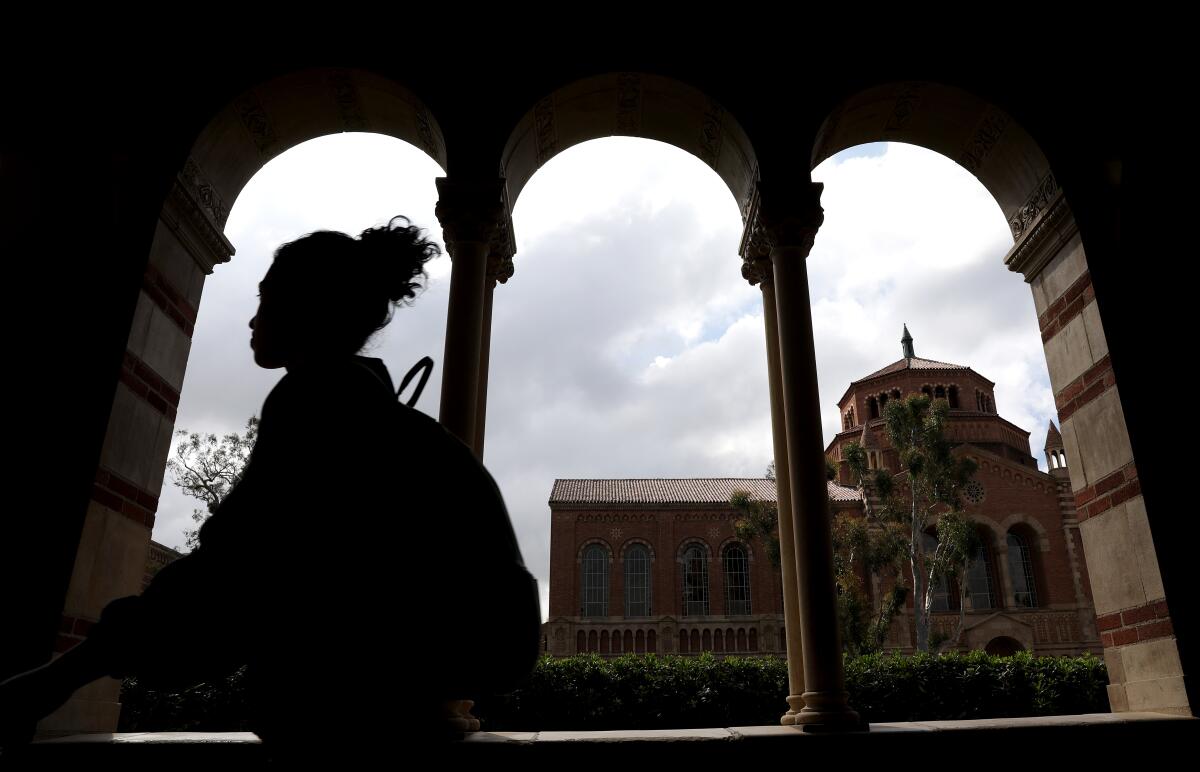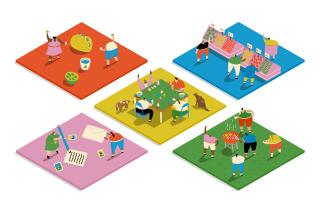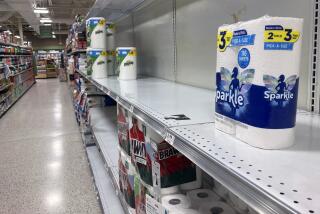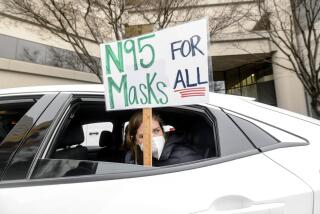We text and order food on apps. Why does coronavirus social distancing feel different?

Just the other day, I walked out in the sun and observed people mingling en masse.
I watched a crowd of tourists in the forecourt of what I still call Mann’s Chinese place their hands, as they’ve always done, into the handprints of stars.
I watched shoppers crowd around tables at the Apple Store at The Grove. I watched families squeeze in next to other families to admire the mall’s dancing fountain.
I saw only the odd mask. I saw strangers walk side by side. If coronavirus social distancing was happening, it was too subtle for me.
Still, I felt an intense wave of loss and nostalgia, which has been growing ever since. Since the rain began to fall. Since Southern California grew cold and gray. Since coronavirus so quickly closed in.
Lately I’ve been mourning not just the physical community we’re now giving up of necessity, but also a togetherness we’ve so casually been letting slip away — since Amazon, since Netflix, since Postmates. Since giant home TVs with surround sound and streaming services, since the arrival of virtual reality.
We have to practice social distancing now for everyone’s sake. We are in the midst of a pandemic. People are falling sick. They are dying.
But haven’t we been distancing ourselves from each other more and more for years? Hasn’t being apart become more and more our norm? Maybe we’re about to start seeing the downside.
In the modern age, even in ordinary circumstances, a lot of us increasingly choose to keep to ourselves. After all, it’s become so very easy and convenient.
Why go to a restaurant when you can have exactly what you would have ordered there delivered to you in the comfort of your home? Why go to a theater when you can watch a newly released movie on TV?
Why go see a friend when you can Facetime and text?
Why go to the office when you can do your job on your own in your pajamas?
Why go to the store and see people — except perhaps to fight for the last rolls of toilet paper — when you can shop on Amazon or Instacart?
Why is it that all these conveniences that we’ve been embracing for years now feel so different when a pandemic requires them? Why does cozy and comfy on the couch now suddenly feel claustrophobic?
In California, we’re used to our earthquakes and our fires making us come together, not come apart. In the rubble, in the ash, we quickly cross our own property lines and comfort zones and reach out to anyone who needs help.
We’re just a few days in, and already coronavirus feels like the loneliest of crises.
Now I go out to walk my dog and strangers see me and cross the street, even when there’s still half a block between us.
Everything that brings us together is being canceled or postponed or turned remote: concerts, conferences, festivals, tournaments, classes, church services, campaign rallies.
Social distance is no longer theoretical, isolation no longer optional.
I’ve stated my worries before about a modern-day world in which more and more people are isolated and lonely, working at jobs without offices, going whole days without real human contact. Now we’re all in that boat. We all will feel how that feels.
I’m hoping forced separation will do the trick and slow down the community spread of coronavirus. I’m willing to do anything to help make that happen. I think we all have to be all in to do that.
Still, many things I often choose to do immediately feel constricting when they are no longer by choice.
All our modern conveniences — our screens and our apps, our online shopping, our delivery services — can provide us with so much coziness and ease when we’re feeling overstimulated and worn out and need to retreat from the big world outside. But we also have the big world to plunge back into. Now suddenly we don’t.
It’s one thing to work from home because you feel like it and you can. It’s another to be told that you cannot go spend the day with your co-workers in the office. It’s one thing to stream a movie by choice or to choose to watch a basketball game on TV. It’s another to be told that you should not go to a movie theater, that you can’t go to a basketball game, that concerts have been called off.
It’s one thing to order in food because you want to put on your comfy clothes and curl up on the couch. It’s another to be told by the experts that it might be best not even to see or greet your delivery person but to have your order left at the front door.
It’s so different to know that you can step out into a crowd again whenever you’re tired of the couch and of texting. Now that crowds are canceled, I am longing for them.
Right now, already, I want nothing more than to go out to eat with friends, to hug a neighbor, to hold a hand. Instead my neighbor stands on the sidewalk and I stay on the porch and we wish each other well from a safe distance.
I’m hoping we get to the other side of this without large-scale tragedy. There’s no way of knowing yet if we will.
But if we do, I’m hoping that the experience of social distancing gives us pause and makes us realize how much we have missed company, not just the company of those we know and love but of strangers.
We live in a world that can be scary, a world where people fire into crowds, where stock markets crash, where the gap between the haves and the have-nots keeps growing, along with the anger and division. But I’m hoping that if we get through this, we don’t let fear take over, that we come together again in full appreciation of how good that can feel.
Just the other day, I watched people mingling en masse. I hope I’ll get to do so again before long.
More to Read
Sign up for Essential California
The most important California stories and recommendations in your inbox every morning.
You may occasionally receive promotional content from the Los Angeles Times.











